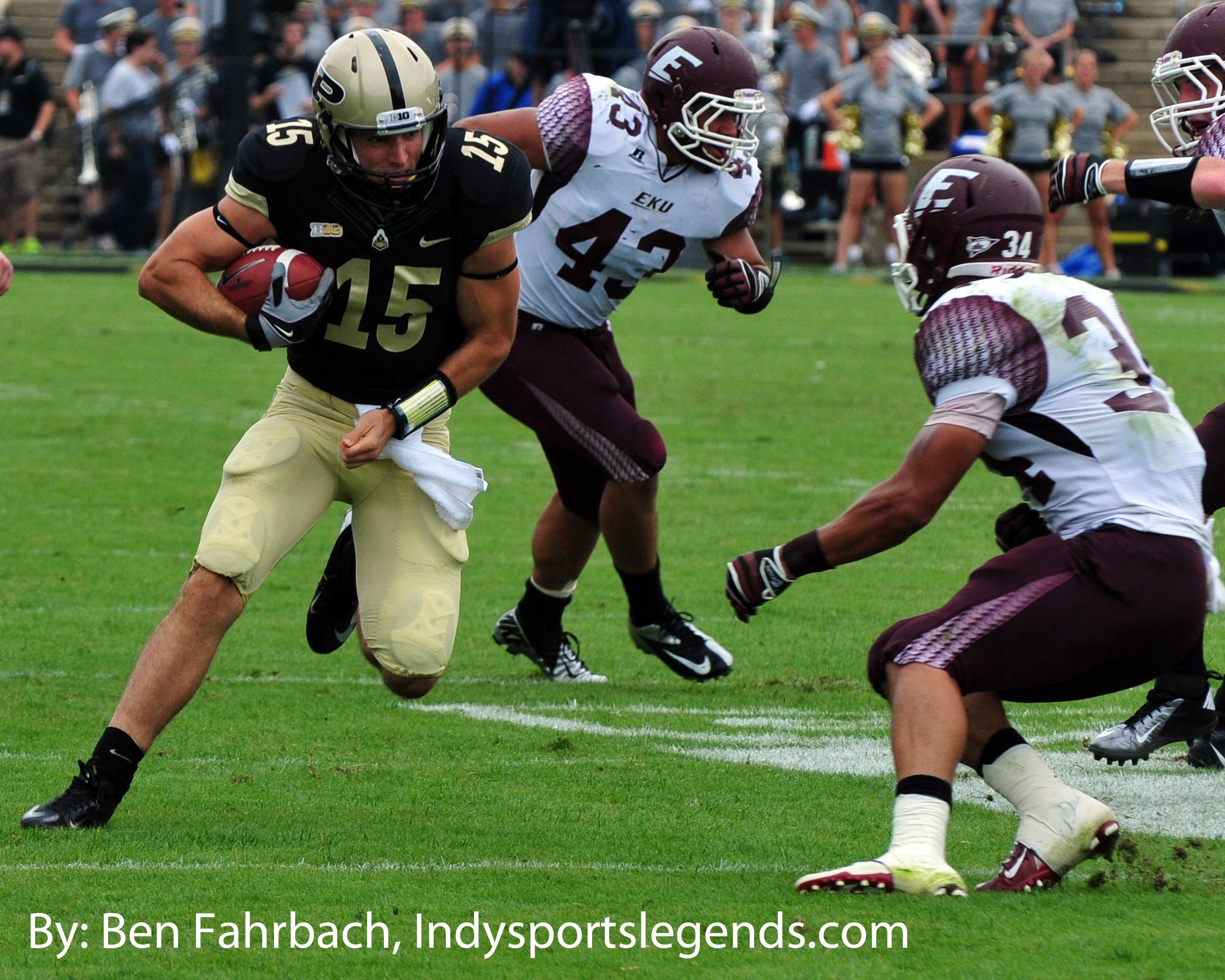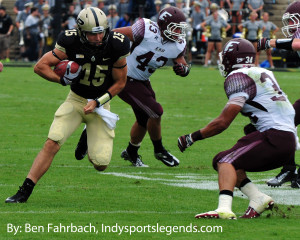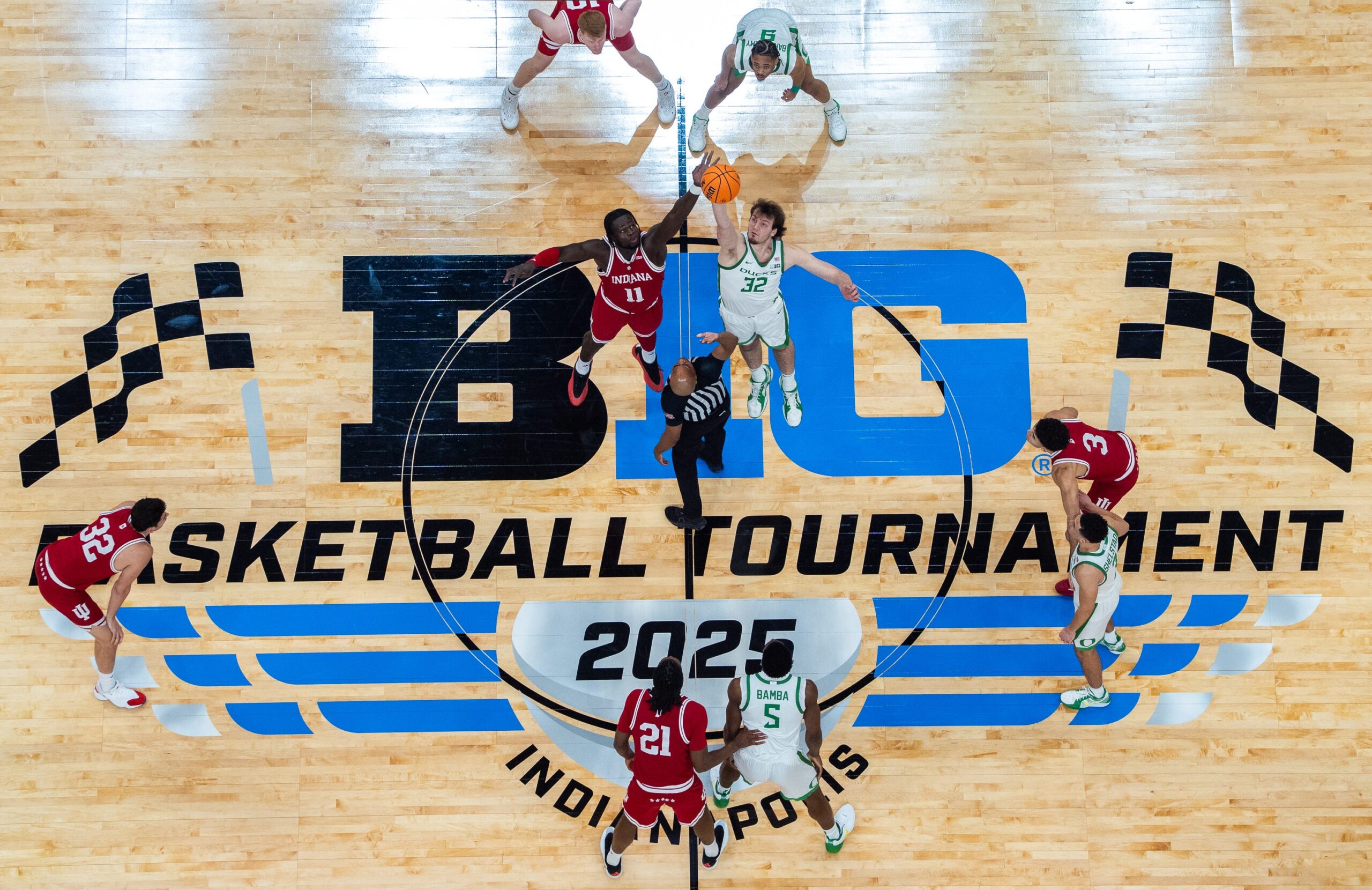Hazell: “Culture thing” a problem for Purdue football

By CLIFF BRUNT
ISL Editor
My wife, Christina, is an assistant professor in the Department of Health Sciences at IUPUI.

Last week, I asked her what she taught her graduate level students in her class, Theories of Health Promotion and Disease Prevention. She said she talked about psychologist Albert Bandura’s theory of self-efficacy.
Self-efficacy? I’m a journalist with a pretty large vocabulary, but I was stumped. “What is that?” I asked, half curious and half ashamed that I didn’t know.
She explained that self-efficacy has to do with, among other things, a person’s belief that he or she can change.
“So why is that a part of what you teach?” I asked.
She explained that folks can’t change their health, or anything else, unless they believe they can. Self-efficacy can be strong or weak. She told her students that the people they serve will sometimes have weak self-efficacy for a variety of reasons, so they need to understand what they might face and be prepared.
Purdue football coach Darrell Hazell is teaching his players about strong self-efficacy, too, though he’s probably not calling it that.
Strong self-efficacy can be counter to human nature in some instances. Culture and traditions play a vital role in health, for better or worse. For example, some folks accept obesity because they haven’t seen an example of overcoming it that they can relate to. In some cases, folks have been surrounded by people with bad habits for so long that they accept less than good as the norm. In those cases, self-efficacy is not even a factor because the person doesn’t even realize there is a problem. The person has to be convinced change is necessary, see that it is possible, accept a realistic path to improvement, then put in the work and stay on it consistently. Once the change is made, self-efficacy improves and can affects other areas in life.
Hazell’s comments this week about the culture within the program immediately took me back to the conversation with my wife. He noticed the way the players responded when Cincinnati got rolling in the second half of its 42-7 victory over the Boilermakers.
“On the sideline, there was these blank stares at times when we were down,” he said.
Hazell responded the same way one might react to the little boy who obviously needs to occasionally go run outside instead of just playing electronic games.
“You have to point it out to them,” Hazell said.
That’s step one — address the problem. It’s a seemingly simple, but very important step. Kudos to Hazell for admitting the issue and presenting it to his team.
But that isn’t enough.
“It’s got to be proven to them that that (falling apart) is what happens a lot of times when you’re not used to being down, or you don’t know how to respond when you’re down, and that is a little bit of a culture thing that we’ll continue to work at,” he said.
But dealing with adversity hasn’t just been an issue when Purdue has fallen behind. The Boilermakers struggle in close games, too. A play here or there and the Boilermakers beat both Ohio State and Notre Dame last season, and Danny Hope is still Purdue’s coach.
But winning those games would have masked the underlying problems. To truly change, there has to be a lifestyle change. A few fleeting moments of success don’t make a person, or a team, different. Sometimes, those chances to take steps towards permanent change come when you’re losing a football game by 30 points and a play needs to be made. Or when you’re down to 350 pounds and you’re trying to get to 280, but you’ve hit a wall and the bell on the ice cream truck is jingling.
What do you do?
Now, we mentioned that there is a need for positive examples to build strong self-efficacy.
Hazell lost his first game as Kent State’s coach 48-7 at Alabama two years ago. That team started the season 1-6 but won four of its last five. The next year, the Golden Flashes won 11 games and Hazell was the talk of the coaching world. He got there by being tough, taking care of details and staying the course. He has an aura of greatness about him, despite the ups and downs. Hazell is the example, the one who can show them how.
But even with a lifestyle change, results don’t always show up immediately on the scoreboard, or the scale. Small, consistent victories lead to bigger ones.
“I think the biggest thing right now is for us to play with a tremendous amount of confidence, no matter what the situation is,” Hazell said. “One of the messages to the team on Sunday is that it doesn’t matter what the scoreboard says or the clock says; you’ve just got to play, and everything else will take care of itself. But sometimes, and I’ve seen this before, sometimes you get paralyzed by the scoreboard, and it doesn’t allow you to unlock your potential, so we are going to make sure that our guys are focused on the game and not the scoreboard. That’s more important.”
One step at a time, until making the play is an unbreakable habit.
To effectively reach that point, Purdue football must become a support group. The veteran players all been through the letdowns. The crash is never as hard if you have people looking out for you. They key, Hazell said, is not to let the rough spots drag everyone down.
“At some point in time, the offense is going to struggle and the defense has got to pick them up,” Hazell said. “At one point in time, the defense is going to struggle and the offense has to pick them up, and that’s all part of the game. We talked about making sure that we support each other in those situations, and that’s how you move through those tough situations throughout the course of the game, because it’s (tough situations) going to happen. At some point in time, it’s going to happen.”
So, there needs to be a positive vibe throughout the locker room for this group to overcome its collective issue. Hazell summed it up by combining the three most important elements of helping someone overcome a problem – honesty, positive energy and a plan to improve.
“It’s a 14-7 game or it’s a 21-7 game — you can’t worry about those things,” he said. “You just have to keep fighting and do your assignment for those particular plays that are coming up. That’s the only thing that you can control at that point in time. We’ll get it fixed. I’m very confident.
“We have a great football team in our locker room, and they are going to show it, and I really believe that, and if I didn’t believe it, I wouldn’t say it,” Hazell said. “But I really like our football team and the guys that are in our locker room right now.”
Hazell is doing his part. Now, it’s up to the players to accept the teaching and apply it.
Well done, Professor Brunt and coach Hazell. I hope your students were listening.






